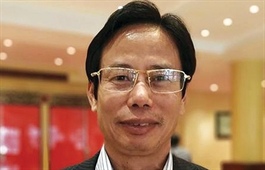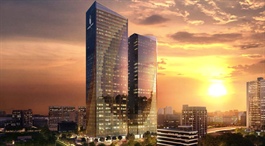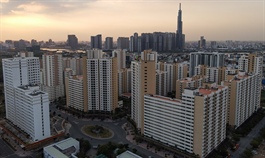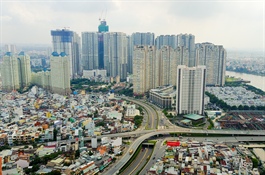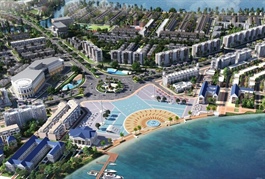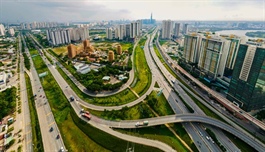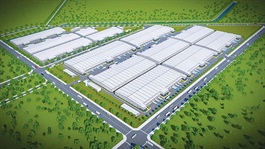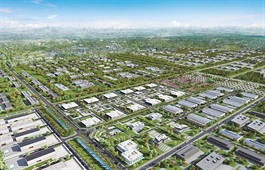Shifting logistics real estate trends
Shifting logistics real estate trends
International trade has been severely impacted by the pandemic. Not only have consumer habits changed but new medicines and vaccines require new capabilities in logistics to be properly delivered and stored. These changes are forcing the sector to adapt.
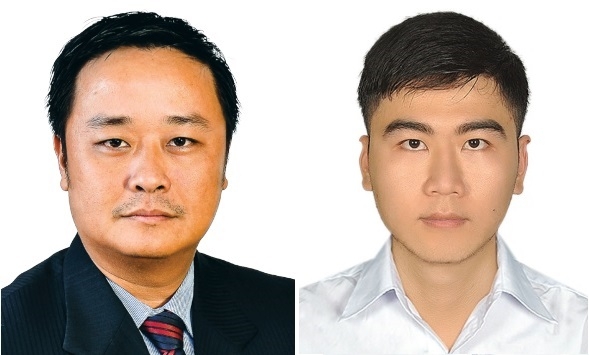
By Le Nguyen Huy Thuy - Partner, Indochine Counsel (left), Ton That Hoang - Legal assistant, Indochine Counsel
|
A market with millions of potential customers, 60 per cent of whom access the internet and all of whom will need a COVID-19 vaccine, the need for large-scale logistics services continues to grow. Investment, specifically in logistics real estate, will only serve as a profit centre for foreign investors who understand the legal requirements to enter the sector.
Vietnam is one of the fastest-growing e-commerce markets in Southeast Asia, with revenue by the end of this year expected to reach $13 billion. In recent years, the supply chain has increasingly focused on consumers, with the speed of delivery a primary factor in making purchasing decisions.
With stay-at-home requirements, more customers shop online. This required competitive prices and strict delivery schedules. The variety of goods, not only dry goods delivery but also cold storage for food and temperature-sensitive items such as pharmaceuticals, vaccines, and cosmetics entered into this ecosystem drove the demand for expanding services.
In 2019 the global cold chain market was valued at $4.7 billion and is expected to reach $8.2 billion by 2025 with an average annual growth rate of 12.5 per cent. Domestic and international investors have long been targeting cold chains and there is a need for more cold storage located closer to customers to serve the demand for temperature-sensitive products. Another driving force for cold storage is specialised healthcare products.
The COVID-19 vaccine distribution process – an unprecedented service in the logistics market – requires a very low temperature that is not normally required in standard cold storage. The need for new facilities and capabilities to meet this demand promises to bring significant profit to investors and service providers who can seize the opportunity.
But cold storage requires additional space for refrigeration, ventilation, and other elements especially in tropical countries. That need will be met through investment in logistics real estate, and in Vietnam there are certain regulations which are necessary to be considered and comprehended before deciding to make such an investment.
Real estate business is in the list of industries and trades in which business investment is conditional, any organisation or individual wishing to conduct real estate trading must set up an enterprise or cooperative. Real estate business includes:
- Leasing houses and buildings for sub-leasing;
- In the case of land leased from the state, the construction of residential houses for the purpose of lease out; and the construction of houses and buildings other than residential houses for the purpose of sale, lease out or grant of hire purchase;
- The construction of houses and buildings on land leased from organisations, family households or individuals, for leasing out in strict accordance with the land use purposes;
- Receiving the transfer of part or all real estate projects from investors in order to construct houses and buildings for the purpose of sale, lease out, or grant of hire purchase;
- The construction of residential houses on land allocated by the state for the purpose of sale, lease out, or grant of hire purchase; and
- The construction of houses and buildings on leased land in industrial zones, industrial complexes, export processing zones, high-tech zones, or economic zones for trading in strict accordance with land use purposes.
These opportunities do not involve the ownership of land. Foreign investors cannot own land in Vietnam but may lease land for the duration of their investment project. The same rule is applied for logistics related to real estate. While a foreign investor can lease land pursuant to the above allowances from individuals, organisations, or the state, they may not own the land which will underlie their investment in logistics facilities.
To invest in real estate business in Vietnam, a foreign investor must establish an enterprise with foreign-owned capital, or contribute capital or purchase shares or capital contribution portions to a Vietnam-based enterprise. Foreign investors must satisfy the conditions and forms of investment set forth in Article 24 and 25 of the Law on Investment, which are fairly basic qualifications.
Once those conditions are met, foreign investors can enter the real estate business and develop logistics facilities to meet requirements by increased e-commerce and supply of the COVID-19 vaccine.
Vietnam has become an ideal place for foreign investors over the last two decades. Despite the pandemic, it still ranked second in the COVID Performance Index and has proven a safe place for foreign investment.
To facilitate foreign investors to invest in supply chains to meet the demand for multi-method logistics and cold chains, the government has loosened rules on real estate investment, particularly logistics real estate.
Given the above conditions, logistics real estate will have many areas for development and very good growth momentum in 2021-2022.







